Learn about the U-Space performance framework and its case studies in the MUSE-EUROCONTROL Webinar on June 26
Tuesday, June 26, 2024, 14:00-15:15 CET, Online
The MUSE partners organise a webinar in partnership with EUROONTROL, as part of the EUROCONTROL’s Learning Platform.
The aim of this webinar is twofold: Firstly, to explain the MUSE U-Space performance framework with a variety of performance indicators, and secondly, to validate important elements which will contribute to final specification of scenarios for each of the three selected missions. Our goal is to establish realistic scenarios that closely reflect the future drone operation environment.
Indeed, MUSE develops a set of performance indicators, methods and tools, with the final objective of assessing the impact of UAM operations on the liveability and quality of life in European cities (e.g., noise, visual pollution or privacy concerns). To demonstrate the capabilities of the MUSE U-space Environmental and Social Impact Assessment Toolset, the project defines plausible future demand scenarios for three different missions envisioned in the project: drone delivery services, emergency (medical) service and loitering (surveying) service. The case studies for all three missions are assessed on the example of the city of Madrid.
Join us on Tuesday, June 26, to learn about the indicators and cross-cutting factors we have defined in our performance framework, and to discover how we specify the three scenarios we will test our performance framework in!
We expect all interested stakeholders to join, from citizens to drone operators, including drone users, U-Space service providers, Air traffic controllers, urban planners and architects, transport operators and authorities at the local, national and European levels. Feel free to reach out for any question!
Agenda
1. Introduction (5 minutes)
2. Performance Framework (15 minutes)
3. Q&A for performance framework (5 minutes)
4. Case study definition (15 minutes)
5. Q&A for case study (10 minutes)
6. Participants’ feedback through short survey (5 minutes)
7. Conclusion (5 minutes)
How Urban Air Mobility supports the United Nations’ Sustainable Development Goals
The 2030 Agenda for Sustainable Development is a global framework adopted by all United Nations Member States in 2015 (United Nations, 2015), aimed at achieving peace and prosperity for people and the planet by the year 2030. It is centred around 17 Sustainable Development Goals (SDGs) (United Nations, 2023), which address the world’s most pressing challenges, including poverty, inequality, climate change, environmental degradation, peace, and justice. The Agenda is universal, inclusive, and calls for action by all countries — developed and developing — in a global partnership. It emphasizes that the SDGs are integrated and indivisible, highlighting the balance between economic growth, social inclusion, and environmental protection. The implementation of the Agenda requires national ownership, global partnership, and the engagement of all stakeholders, including governments, the private sector, civil society, and individuals, to ensure no one is left behind.
As part of the research on the impacts of Urban Air Mobility (UAM) on citizens’ quality of life, the MUSE project reviewed the relationship between UAM and the UN sustainable development goals. Considering the SDGs’ relation to social and environmental consequences of multiple trends, they are closely linked to the MUSE objectives. These goals, and associated indicators, have been a key input for the development of the MUSE Environmental and Social Performance Framework, which will be published in the upcoming months.

Indeed, the integration of UAM into urban transportation systems has the potential to significantly influence the achievement of several of the United Nations Sustainable Development Goals. Operating Unmanned Aerial Vehicles (UAVs) within the framework of UAM can have specific impacts on many SDGs, and in particular:
- SDG 3: Good Health and Well-being
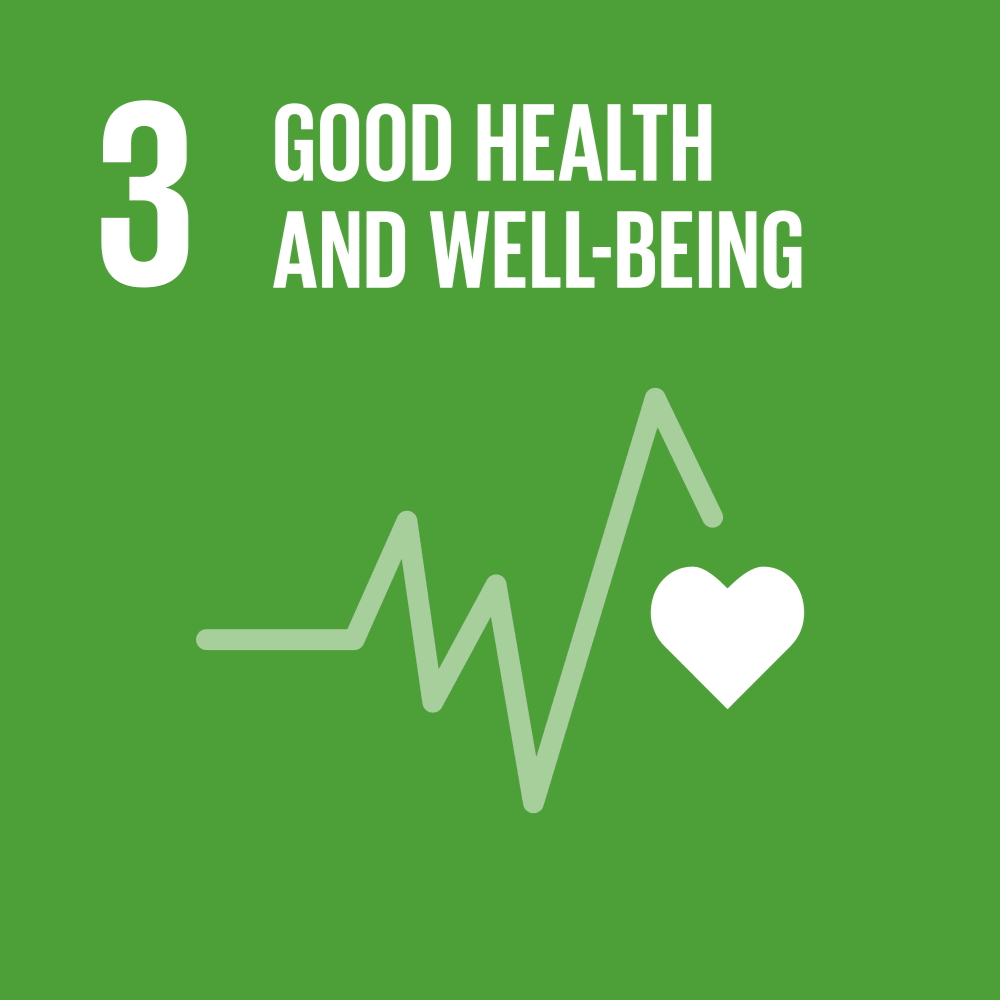 Positive Impact: Drones can be used for rapid delivery of medical supplies, vaccines, and blood transfusions to remote or hard-to-reach areas, improving access to health services and emergency care.
Positive Impact: Drones can be used for rapid delivery of medical supplies, vaccines, and blood transfusions to remote or hard-to-reach areas, improving access to health services and emergency care. - SDG 7: Affordable and Clean Energy
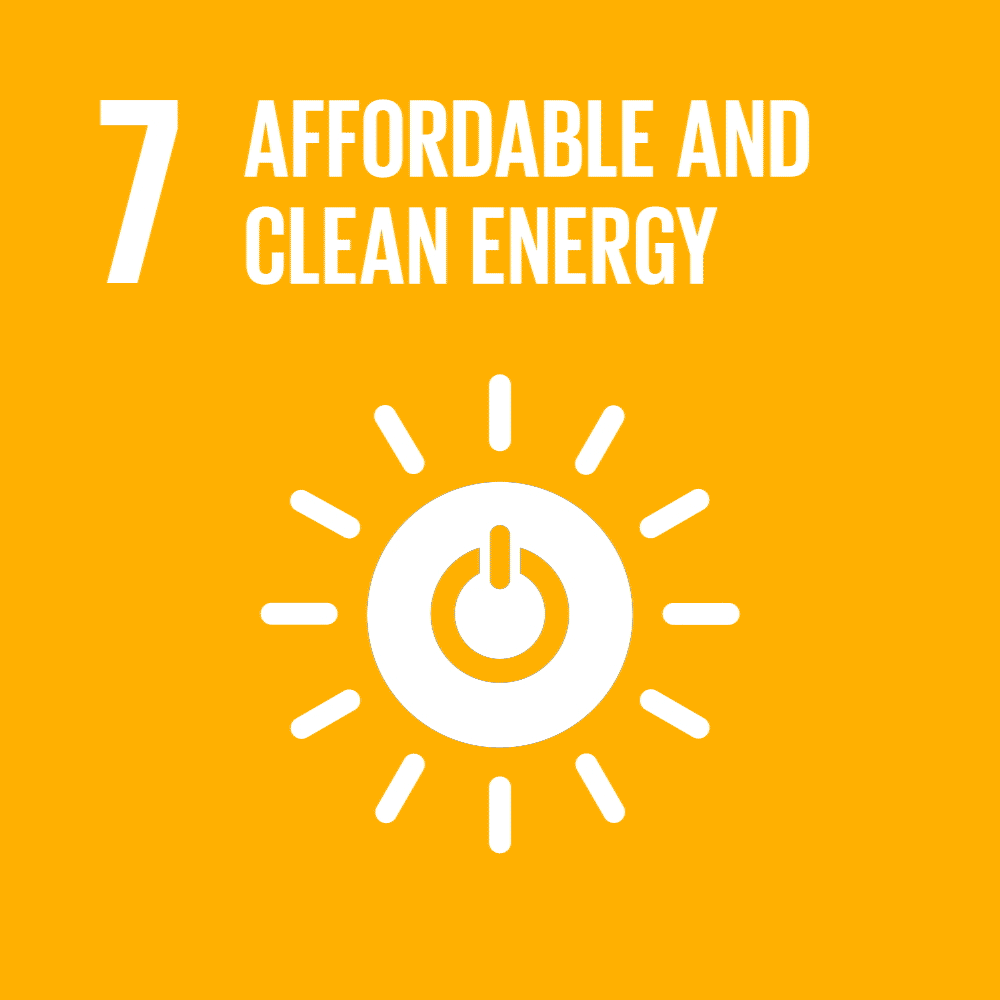 Positive Impact: The development of electric-powered drones contributes to the reduction in greenhouse gas emissions associated with traditional fossil fuel-based transportation methods.
Positive Impact: The development of electric-powered drones contributes to the reduction in greenhouse gas emissions associated with traditional fossil fuel-based transportation methods. - SDG 8: Decent Work and Economic Growth
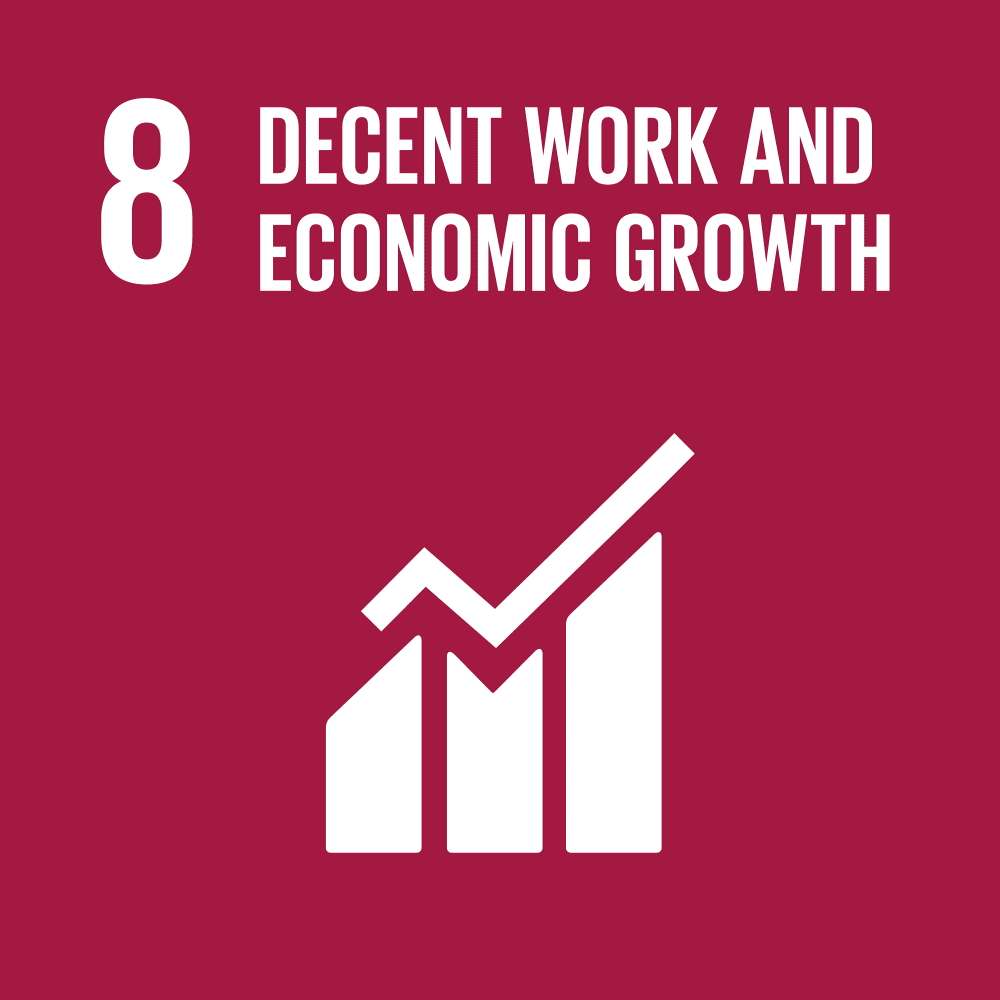 Mixed Impact: UAM can disrupt existing jobs in traditional transportation industries, but it may also create new jobs in technology, manufacturing, and service sectors.
Mixed Impact: UAM can disrupt existing jobs in traditional transportation industries, but it may also create new jobs in technology, manufacturing, and service sectors. - SDG 9: Industry, Innovation and Infrastructure
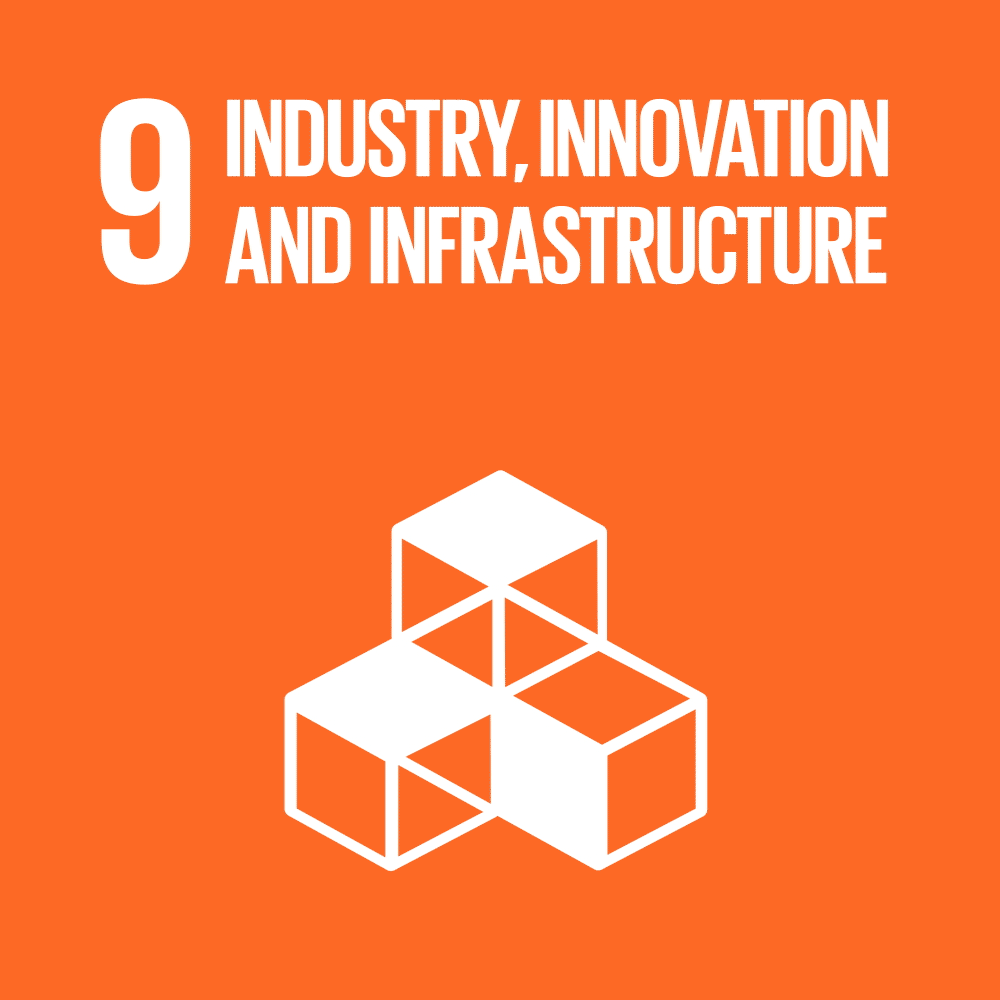 Positive Impact: UAM represents a significant innovation in transportation technology, potentially leading to advancements in infrastructure that accommodate air mobility solutions, such as vertiports and eVTOL landing pads.
Positive Impact: UAM represents a significant innovation in transportation technology, potentially leading to advancements in infrastructure that accommodate air mobility solutions, such as vertiports and eVTOL landing pads. - SDG 11: Sustainable Cities and Communities
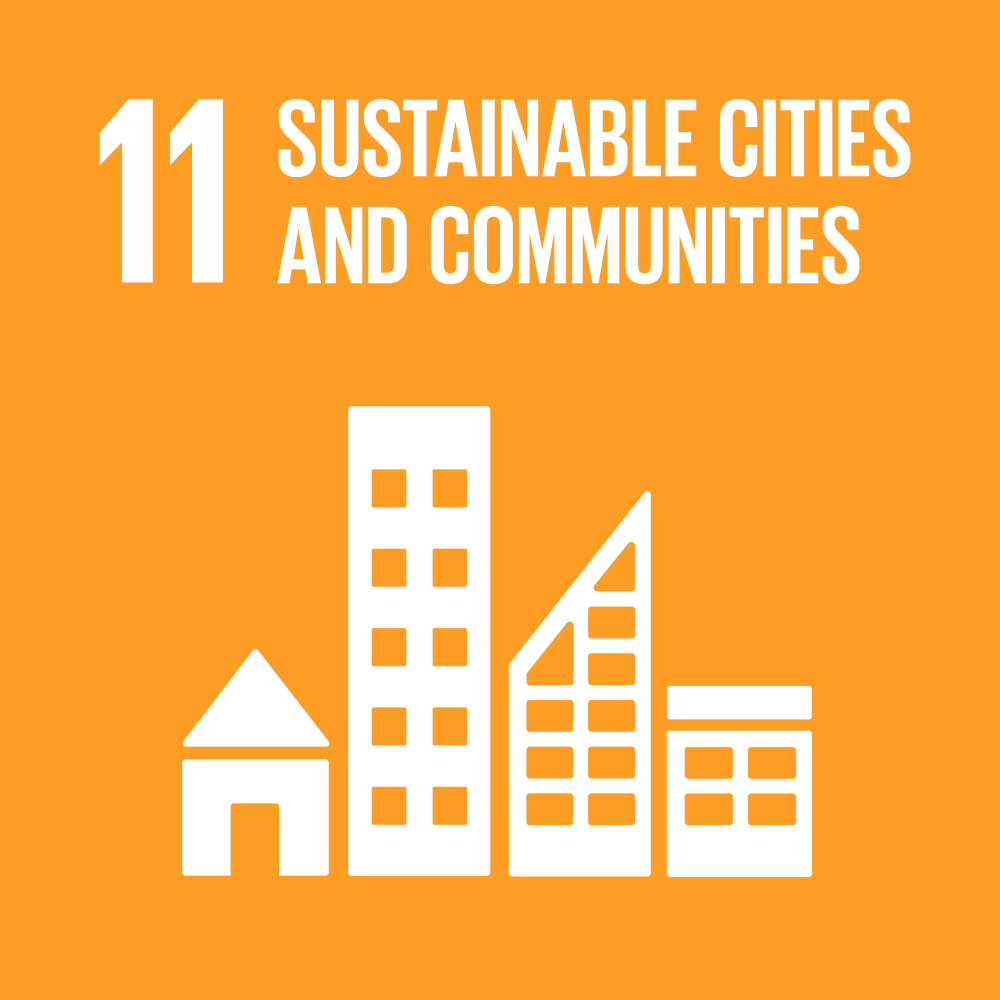 Mixed Impact: While the introduction of drones and eVTOLs into urban areas raises concerns about noise, privacy, and safety, UAM can also reduce congestion on urban roads and contribute to more efficient transportation systems. Thoughtful regulation and urban planning are required to ensure that UAM contributes positively to the sustainability of cities.
Mixed Impact: While the introduction of drones and eVTOLs into urban areas raises concerns about noise, privacy, and safety, UAM can also reduce congestion on urban roads and contribute to more efficient transportation systems. Thoughtful regulation and urban planning are required to ensure that UAM contributes positively to the sustainability of cities. - SDG 12: Responsible Consumption and Production
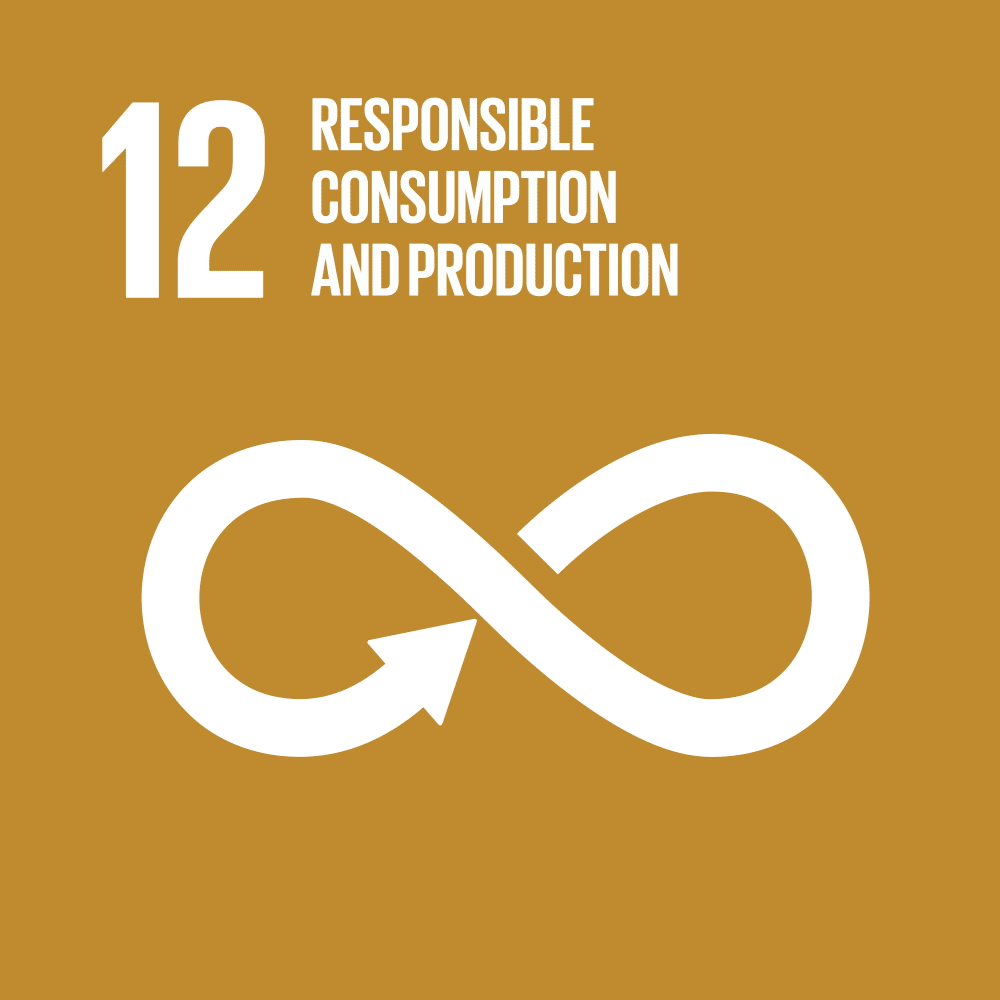 Positive Impact: Drones can make supply chains more efficient by improving inventory methods in warehouses and by lowering transport times, contributing to more sustainable production patterns.
Positive Impact: Drones can make supply chains more efficient by improving inventory methods in warehouses and by lowering transport times, contributing to more sustainable production patterns. - SDG 13: Climate Action
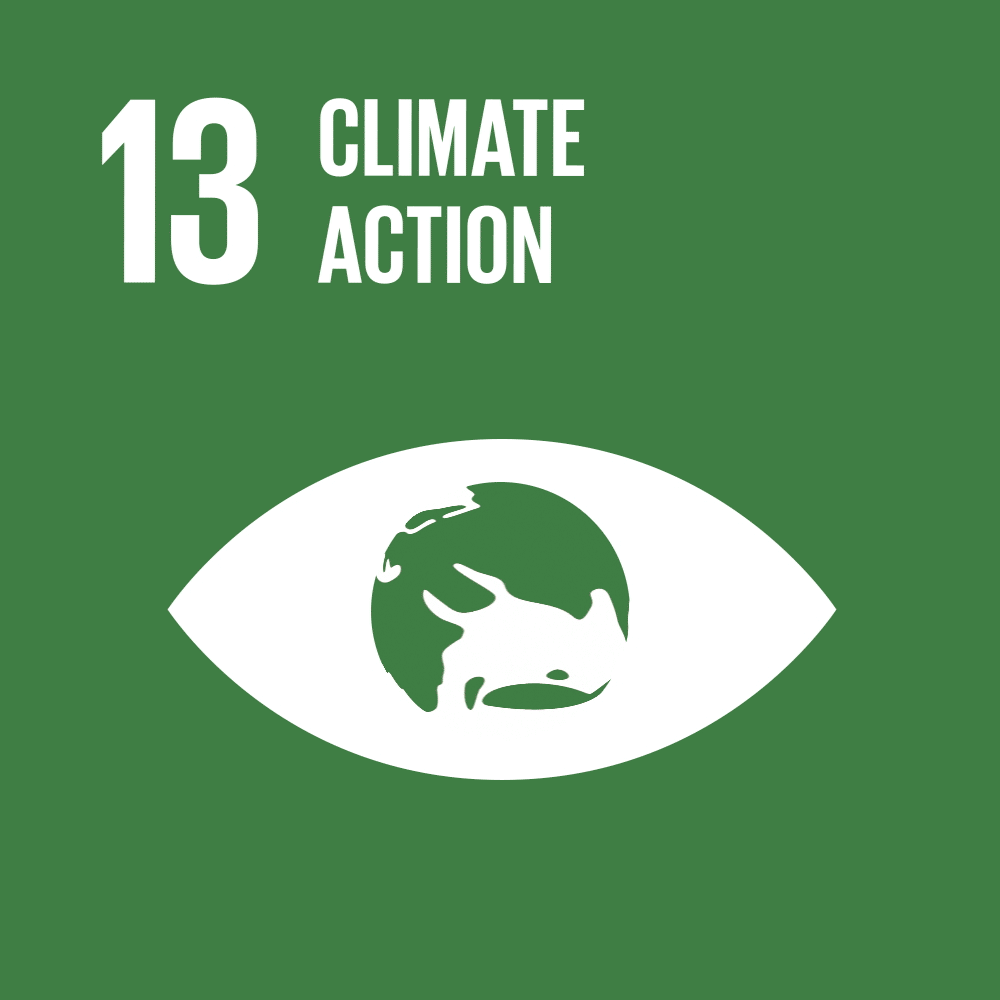 Positive Impact: By providing a cleaner alternative to ground-based transportation, especially if powered by renewable energy, drones can contribute to efforts to combat climate change.
Positive Impact: By providing a cleaner alternative to ground-based transportation, especially if powered by renewable energy, drones can contribute to efforts to combat climate change. - SDG 15: Life on Land
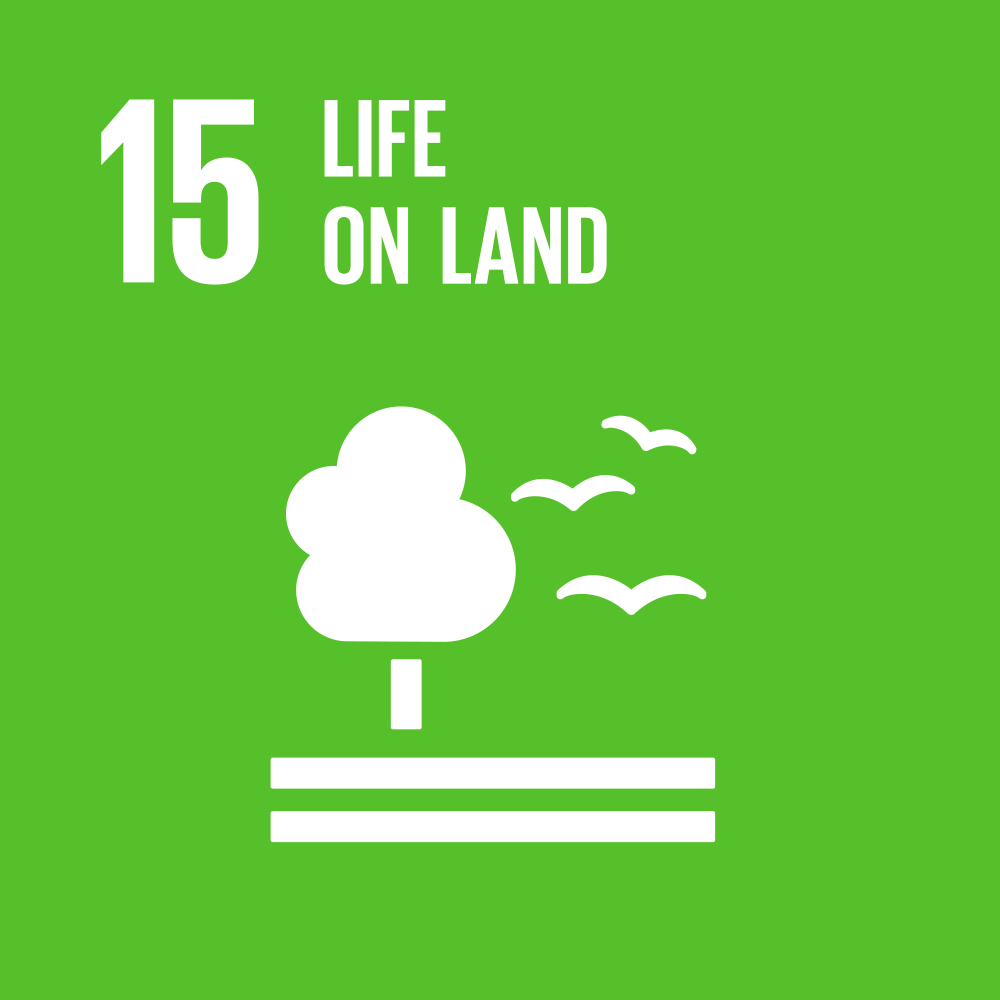 Mixed Impact: Drones’ deployment needs to be managed carefully to avoid disturbing wildlife, but drones are also used in wildlife monitoring and anti-poaching efforts, contributing to biodiversity.
Mixed Impact: Drones’ deployment needs to be managed carefully to avoid disturbing wildlife, but drones are also used in wildlife monitoring and anti-poaching efforts, contributing to biodiversity. - SDG 17: Partnerships for the Goals
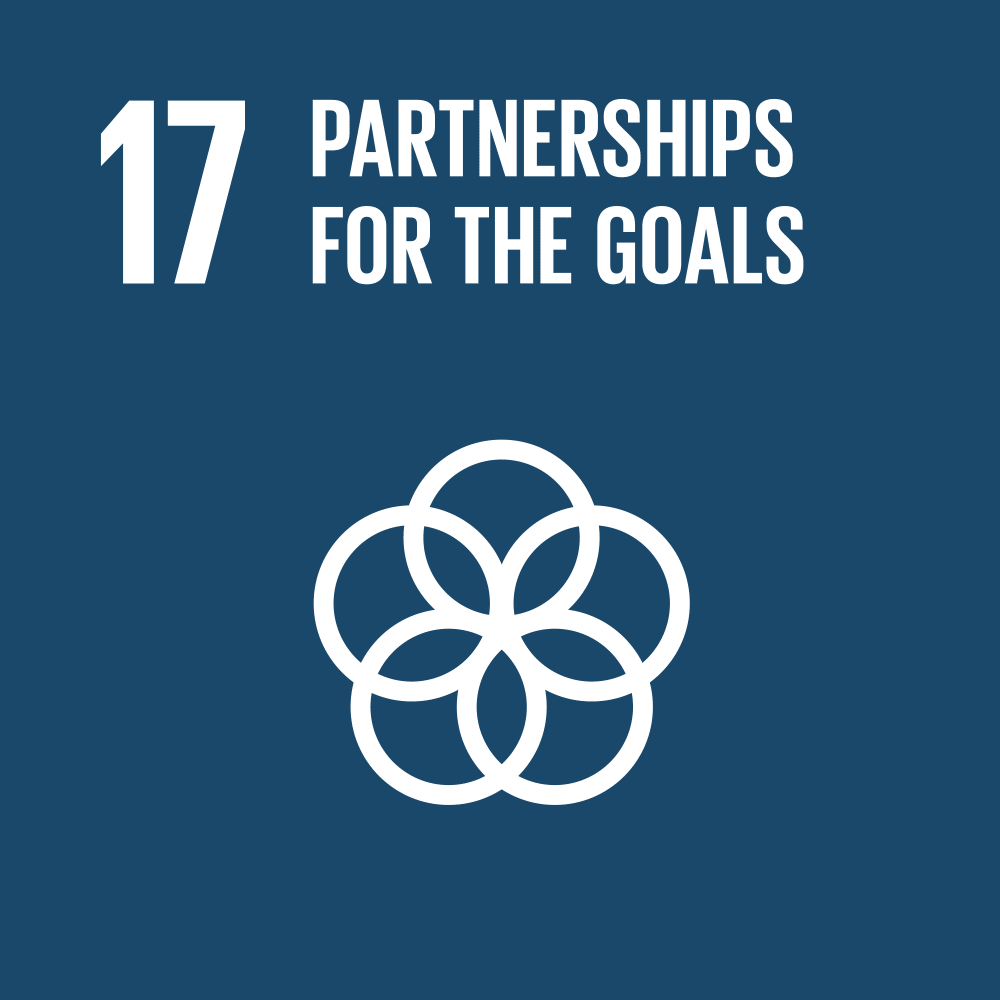 Positive Impact: The development and integration of UAM solutions involves partnerships between governments, industries, and civil society, fostering collaboration towards achieving the SDGs.
Positive Impact: The development and integration of UAM solutions involves partnerships between governments, industries, and civil society, fostering collaboration towards achieving the SDGs.
For UAM and drone operations to positively affect the SDGs, several considerations must be taken into account:
- Regulatory Frameworks: Comprehensive regulations are needed to ensure safety, privacy, and environmental protection.
- Equity and Accessibility: Efforts should be made to ensure that the benefits from UAM are accessible to all segments of the population, including marginalized and low-income groups.
- Environmental Sustainability: To ensure an overall positive impact of UAM on the environment, the direct consequences of operations such as UAV manufacturing, flight planning, authorizing, monitoring, and drones’ and eVTOLs’ disposing must be carefully assessed and minimized.
To summarize, the extent to which UAM will contribute to achieving the SDGs depends on the policies, technologies, and practices that are developed as this sector evolves.
In addition to the UAM impact in general, the MUSE project aims at having a positive impact on several of the Sustainable Development Goals as follows:
- SDG 3 (Ensure healthy lives and promote well-being for all at all ages): UAM’s quantification of noise and visual pollution will help setting the target that will assure implementation of this innovative concept under acceptable impact on the population, improving the quality of life in cities.
- SDG 9 (Build resilient infrastructure, promote inclusive and sustainable industrialization and foster innovation): The tool trains drone operators and public authorities in the use of artificial intelligence for more efficient UAM management.
- SDG 10 (Reduce inequality within and among countries): Mobility data of vulnerable population groups allows considering their conditions of exposure to noise and visual impact.
- SDG 11 (Make cities and human settlements inclusive, safe, resilient and sustainable): The tool contributes to an efficient planning of the UAM that is environmentally friendly and attractive to all citizens.
From an economic and technological point of view, the results of MUSE open the door to the development of innovative products and services. The proposed U-space service for the optimisation of the social and environmental impact of UAM operations is the clearest example, but the technologies developed by MUSE can also enable other products and services, such as (i) new U-space simulation tools based on the developed trajectory generation tools; (ii) new tools for modelling noise propagation in urban areas; or (iii) new population mapping tools, applicable to risk analysis studies of UAM operations.
It should be noted that the applicability of many of these technologies goes beyond the aviation domain and generates business opportunities in other sectors (e.g. population exposure tools are of interest for a wide range of problems, from air quality to the spread of diseases). Finally, the results of MUSE will increase the social acceptance of UAM, which in turn will contribute to fostering the drone economy and industry.
Stay updated on MUSE’s latest developments and activities by following us on social media. LinkedIn – Twitter
References
[1] United Nations (2015). Transforming our World: The 2030 Agenda for Sustainable Development.
[2] United Nations (2023). United Nations – Department of Economic and Social Affairs, The Sustainable development Goals Report 2023: Special Edition.
MUSE 1st Stakeholder Workshop – Shaping the Future of Urban Air Mobility for Citizens
We are excited to announce the upcoming MUSE project’s 1st Stakeholder Workshop, set to take place on 23 November in beautiful Luxembourg. This pivotal event will be hosted at EUROCONTROL’s Luxembourg facilities. Participation is free of charge!
Where MUSE Meets AiRMOUR
In a noteworthy alignment, the MUSE workshop coincides with the final masterclass of the AiRMOUR project: Role of European cities in the context of Advanced Air Mobility. LuxMobility in partnership with EUROCONTOL will hold a 1.5-day masterclass to bring together learners on the AiRMOUR training curriculum and interested stakeholders to build their knowledge on the topic of Urban air Mobility use cases focusing on European cities. The synergy between the MUSE and AiRMOUR projects amplifies the potential for groundbreaking insights and solutions within the realm of UAM. The MUSE two-hour workshop is not just about discussion; it’s about driving actionable results. Participants will have the unique opportunity to engage with multiple project partners of MUSE and with other UAM professionals, exchanging ideas and experiences that will shape the future of U-Space. During the first MUSE workshop, participants will find themselves at the heart of a transformative experience. They will not merely observe or listen passively; they will actively drive change. What sets this workshop apart is the chance it provides for attendees to connect with diverse partners of both MUSE and AiRMOUR. These partners, comprising experts, innovators, and thought leaders in the field, are the architects of UAM’s future.
The primary objective of the workshop is to enrich and validate the results of a comprehensive review of previous and ongoing studies, as well as insights from existing surveys and focus group discussions. Our aim is clear: to identify the most relevant impacts of UAM on citizens’ quality of life. The MUSE project partners recognize that the impacts of UAM are multifaceted. They encompass noise-related concerns, visual pollution, and many other aspects. This workshop will play a crucial role in helping us classify these impacts according to their nature.

Who Will Attend?
Among the invited stakeholders will be members of the SESAR community, leading ATM experts, aviation authorities with a vested interest in UAM, drone manufacturers and operators shaping the industry’s future, forward-thinking delivery companies, policymakers crafting the regulatory landscape, local authorities and urban planners moulding the cities of tomorrow, citizen associations representing the voice of communities, health officers keen on the well-being of urban dwellers, environmental health specialists advocating for a sustainable future, sociologists and psychologists contributing valuable insights into the societal aspect, and academia, offering a wealth of research and innovation.
Each attendee holds a vital role in advancing the UAM mission. This workshop’s guest list has been meticulously constructed to ensure that the right voices are in the room, ready to collaborate and forge pathways to a brighter UAM future. This exclusive event will be a catalyst for transformation, and it’s the collective wisdom and influence of these individuals that will drive UAM to new heights. The MUSE partners are honoured to invite these essential stakeholders to the table, where the future of urban air mobility will be shaped. If you identify with one of the categories above, you ARE on this guest list!

We cannot wait to be in Luxembourg on 23 November, where together, we will set the foundation of shaping the future of urban air mobility for the benefit of citizens.
Keep an eye on our website for updates as we get closer to the date. We look forward to organising this workshop in Luxembourg for what promises to be an inspiring and collaborative event.

